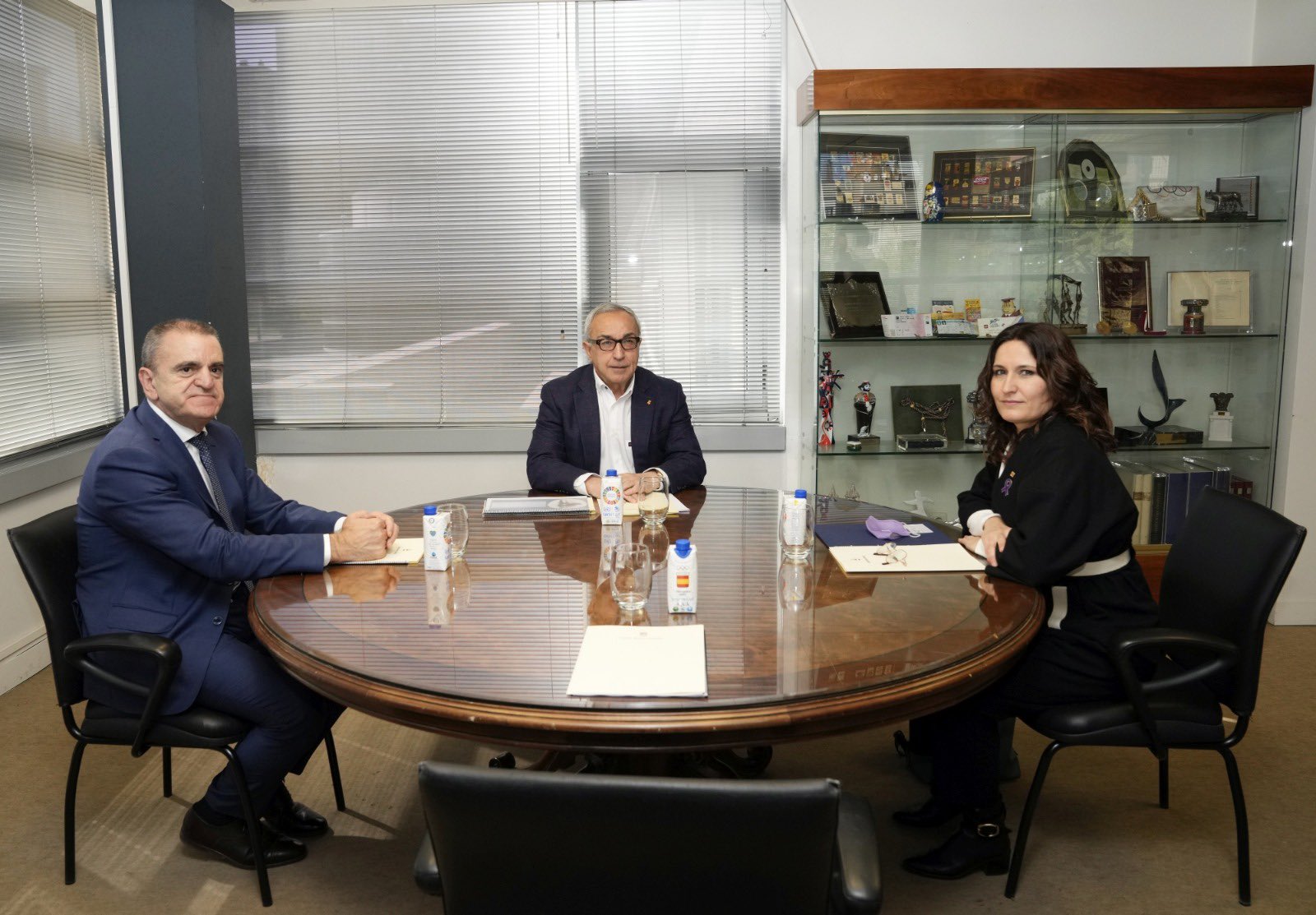A joint Games bid approved - in the absence of one of the two host partners. The meeting that the Spanish Olympic Committee (COE) had called in Madrid for the Spanish, Catalan and Aragonese governments to sign the technical agreement for the candidacy for the 2030 Winter Olympics took place today, in the absence of the Aragonese executive, which, as its president, Javier Lambán, had announced, had withdrawn from the agreement. The COE explained that the meeting had "validated the proposal presented, debated and agreed by the Technical Commission", thus ratifying the project even though Aragon apparently now renounces it. Without going into detail, the committee did mention the absence of one of the two autonomous communities involved. "We hope and trust that the government of Aragon will join this proposal," were the words of the brief press statement issued after the meeting attended by the Spanish Olympic Committee president, Alejandro Blanco, the Spanish secretary of state for sport, José Manuel Franco, and the Catalan presidency minister, Laura Vilagrà.
After the meeting, Vilagrà was satisfied with the validation of the initial proposal: “We are satisfied with the agreement reached. Today it was a question of completing that approval from a political point of view ", she stressed. In this regard, she recalled that the agreement had "been difficult" - requiring six meetings - and she reiterated that the government did not plan to accept any changes to the proposal.
Aragon "won't accept it"
Hours earlier, the president of Aragon, Javier Lambán, had declared that he would not accept this technical proposal for the geographical distribution of the Games events and venues for this joint candidacy with Catalonia: "I can state categorically that this proposal will not be accepted under any circumstances", he said, while on a visit to a school at the same time as the Madrid meeting was taking place. According to Lambán, the technical proposal does not reflect the balanced and equal bid that they demand, which was the commitment made by the COE and the Spanish government when they invited the communities to participate in the Olympic project. Now, the Aragonese government will present a new proposal, demanding that in addition to Candanchú, events should be held in two key Aragon ski stations, Formigal and Cerler.
For her part, the Spanish government's delegate in Aragon, Rosa Serrano, expressed her support for a candidacy based on "equality" with Catalonia. Serrano, in a press conference, expressed her respect for the decision of the government of Javier Lambán not to attend the meeting in Madrid today. When the outcome of the meeting was not yet known, Serrano endorsed that it should be "equal" for both territories, as the region claims.
The COE, optimistic about the candidacy
Nevertheless, COE president Alejandro Blanco assured that the institution is "fully" confident that Aragon will return to the proposal and recalled that the project was approved by a technical commission that held six meetings in which representatives of the Lambán executive were present. Thus, he justified his optimism, saying that he is fully confident that this bid will go all the way. "When something is agreed, it must be maintained," he said.
Blanco, who is awaiting a decision by the president of Aragon, wanted to stress that this situation goes beyond a sporting issue. In any case, he made it clear that the discrepancy needs to be resolved quickly, since a visit by the candidacy monitoring committee is scheduled for May, so what has to be done, must be done now.
Over the possibility of a solo Games bid by Catalonia, the head of the committee did not want to speculate, but admitted that many people are already thinking about this situation. "We are where we are. We are in the bid that we have presented to the IOC, presented by the COE and validated by the Spanish government. That is what we have confidence in,” he said. After the meeting, Blanco addressed Lambán directly: "We hope, wish and trust that Aragon will also validate this proposal, because, among other reasons, in the technical commission there were three representatives appointed by the government of Aragon," he underlined.

